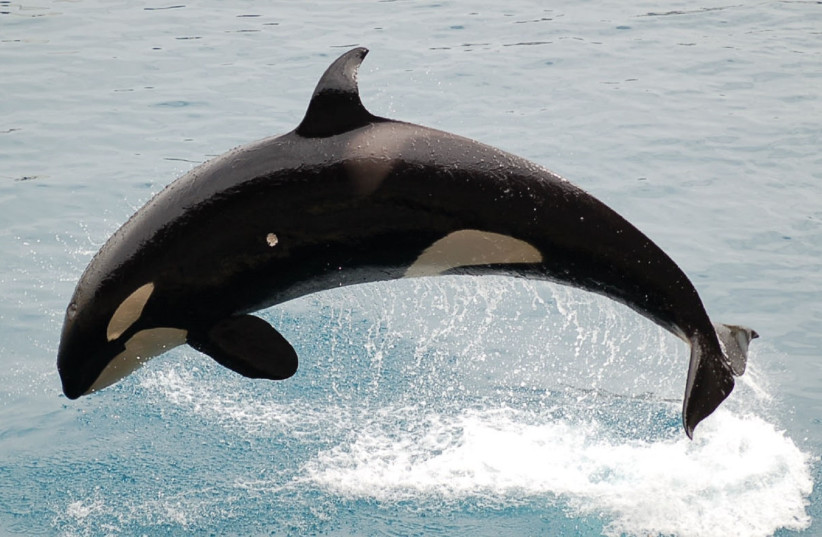Orcas, also known as killer whales, were captured on camera for the first time hunting a great white shark off the coast of South Africa in May, and CNN reported that the footage was released this week.
"The combined footage and events described here, provide novel insights into how killer whales cornered, captured and incapacitated white sharks and how sharks responded."
Study analyzing footage of the orca attack
An analysis of the drone footage was submitted and accepted to the Ecological Society of America's peer-reviewed journal The Scientific Naturalist. The study explained that "prior evidence of white shark deaths from killer whale predations has been limited to recovered carcasses (Towner et al. 2022a). The combined footage and events described here, provide novel insights into how killer whales cornered, captured and incapacitated white sharks and how sharks responded."
The footage showed two different orcas closely following great white sharks. In another clip, several orcas can be seen consuming great white shark remains. Specifically, they were feasting on the shark's liver. According to a 2019 National Geographic article, orcas likely target shark livers because they're "high-fat and delicious." A great white shark liver can be up to 600 pounds of meat.

The Washington Post quoted Alison Towner, a shark biologist at Marine Dynamics Academy in Gansbaai, South Africa and the study's lead author, as saying that "this behavior has never been witnessed in detail before, and certainly never from the air.”
The history of orcas and great whites
Despite not being caught on video until this year, this phenomenon is well-documented. According to National Geographic, the first known documented sighting of an orca attack on a killer whale was in October 1997off the coast of San Francisco.
Scientists were baffled - how could any predator dominate the great white shark?
“From that moment on, everything seemed to be different as far as perspective about orcas and white sharks,” said Scot Anderson, a seasonal researcher for Monterey Bay Aquarium. “It completely changed everybody's ideas.”
In the intervening years, the evidence built up to suggest that orcas were regularly feasting on great white shark livers.
This footage may shed new light on the way great whites try to escape orca attacks - namely, by keeping them within sight, according to The Washington Post. This is the same strategy used by seals and tortoises to evade sharks, according to researchers. However, this method of circling and keeping the predator within sight is likely ineffective against orcas because they hunt in packs. This, according to researchers, allows them to corner their prey rather than simply outrunning (or out-swimming) their targets.
